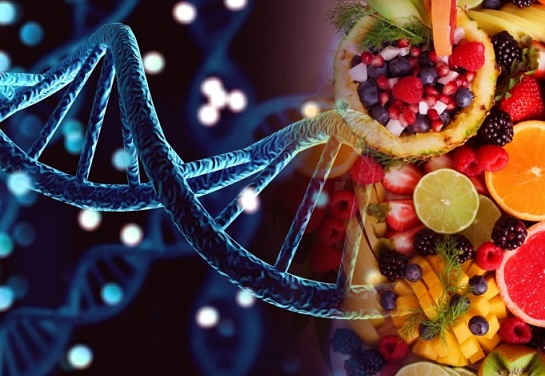New Hope for Disease Prevention through Nutrigenetics and Personalized Nutrition
Nikhil Prasad Fact checked by:Thailand Medical News Team Jun 30, 2025 7 months, 2 weeks, 2 hours, 20 minutes ago
Medical News: As science uncovers more about how our genes and food interact, a new field called nutrigenetics is offering powerful ways to prevent chronic illnesses by tailoring diets to our individual DNA. Researchers are now able to identify specific gene variants that can either raise or lower the risk of diseases like obesity, diabetes, asthma, liver disease, and even some cancers—depending on what we eat, drink, and how we live our daily lives.

This
Medical News report is based on a new editorial and research review from Dr. Ruth Birk of the Nutrition Department at the Health Science Faculty of Ariel University in Israel. The review compiles findings from multiple recent studies that show how genes and lifestyle factors like diet, alcohol consumption, and physical activity work together to influence health outcomes. The science reveals that while genetics play a role in disease risk, our lifestyle choices can often tip the scales toward health or illness.
How Genes and Diet Interact
One of the key studies highlighted focuses on the FGF21 gene, which plays a role in metabolism. Korean researchers found that individuals with specific genetic variations in FGF21 who also consumed more dietary protein had a higher risk of developing non-alcoholic fatty liver disease (NAFLD)—especially women. This suggests that protein intake might need to be carefully managed for those with certain genetic profiles.
Another groundbreaking study looked at the FTO gene, widely known as a “fat gene.” People with this gene variation are more prone to obesity. However, researchers from Ariel University found that regular physical activity and moderate wine consumption significantly reduced this genetic risk, while drinking sugar-sweetened beverages made it worse. This reinforces the idea that lifestyle decisions can either protect or harm us—even if we have a genetic tendency toward disease.
Vitamin D Genes and Lung Health
A separate study identified a link between variations in the Vitamin D receptor gene (called Cdx2) and asthma risk, suggesting that some people might need more vitamin D to stay healthy. Another investigation revealed that certain genetic combinations in the vitamin D pathway might reduce the risk of non-small-cell lung cancer, pointing to the possibility of future genetic screening to guide prevention.
Natural Compounds Target Genes Too
Researchers from Malaysia studied the effect of annatto-derived tocotrienols (forms of vitamin E) on bone cancer cells. The study showed that these natural nutrients could stop cancer cells from growing and trigger cell death by activating certain stress and autophagy pathways while suppressing cancer-linked genes. This supports using food-based therapies as add-ons to traditional cancer treatments.
New Avenues in Combating Muscle Loss
Another study by Chinese researchers revealed that genistein, a compound found in soy, helps prevent muscle wasting caused by steroid use. It works by turning off a gene called miR-222 that normally blocks muscle-building signa
ls. This could one day help patients battling muscle loss due to medication or aging.
The Promise of Personalized Nutrition
In Brazilian adolescents, specific gene variants were linked to signs of metabolic syndrome, including high blood sugar and hypertension. Even without diabetes, these genetic clues could help doctors predict future health problems. The study emphasizes the need to use DNA testing in routine health checks, especially in young people, to catch issues before they develop into chronic disease.
The combined findings across these studies mark a major shift in how we approach healthcare. Instead of using one-size-fits-all advice, doctors and nutritionists could soon tailor prevention and treatment plans based on each person’s genetic code. By understanding how our genes respond to nutrients, we can make smarter choices to protect our health long before symptoms show up.
The study findings were published in the peer reviewed journal: Nutrients.
https://www.mdpi.com/2072-6643/17/13/2165
For the latest on Nutrigenetics, keep on logging to
Thailand Medical News.
Read Also:
https://www.thailandmedical.news/news/weill-cornell-researchers-warn-that-a-common-dietary-fat-is-fueling-the-most-dangerous-type-of-breast-cancer
https://www.thailandmedical.news/news/ketogenic-diets-can-cause-liver-damage-and-gut-dysbiosis
https://www.thailandmedical.news/news/breaking-diabetes-news-a-study-for-the-first-time-finds-that-too-much-salt-consumption-can-also-increase-risk-of-diabetes
https://www.thailandmedical.news/articles/diets-and-nutrition
